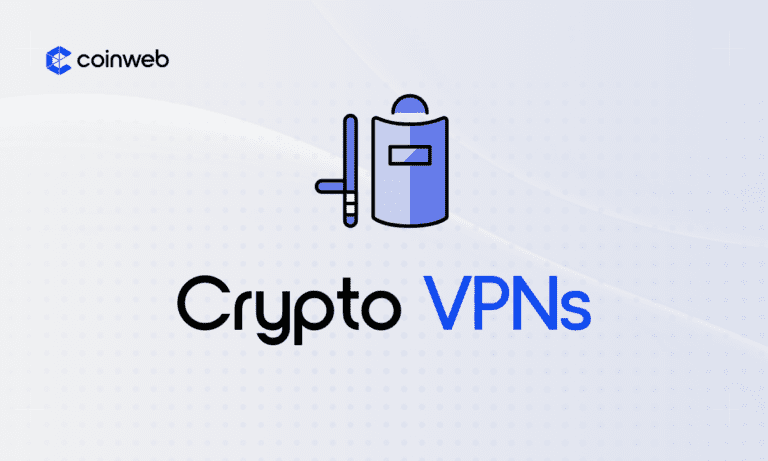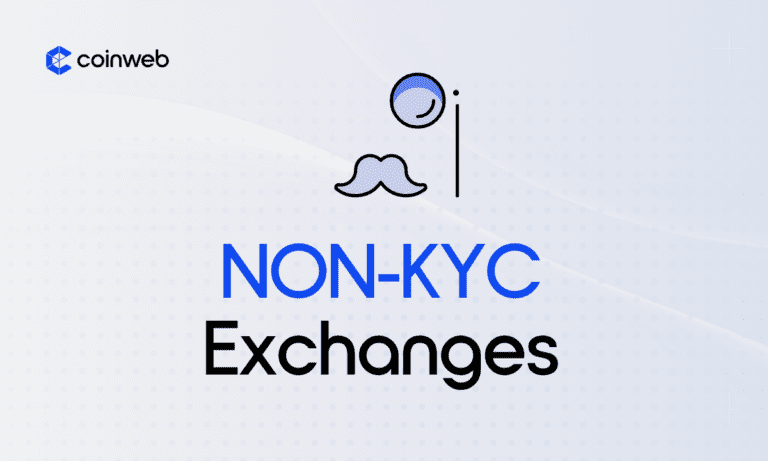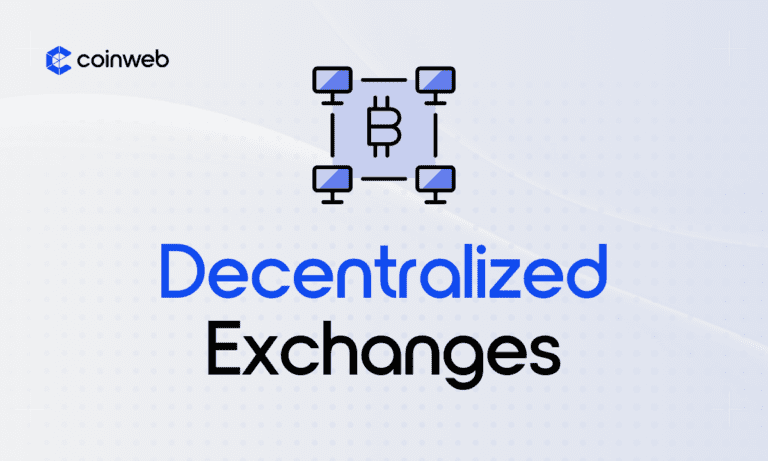TLDR
When it comes to crypto trading, selecting the right VPN can be challenging. However, we have done in-depth research and compiled a list of the best VPNs for crypto trading. This comparison will explore them all and their features.
Cyber-attacks and security breaches on crypto exchanges are common. A VPN that can offer protection against hackers and DDoSers while providing fast enough speeds for trading is necessary. Some VPNs may not protect wallets well or allow access to blocked crypto exchanges or trading platforms.
Using a VPN in the crypto market is a logical choice for enhancing privacy and security. Buying cryptocurrencies while using a VPN can hide your payment data from prying eyes.
Not all VPNs work for both crypto payments and trading. Some may not accept cryptocurrency payments or have enough security against cyber-attacks.
Introduction
The popularity of cryptocurrency is indisputable, but it also comes with its reasonable share of issues and threats. Security breaches and thefts have become far too familiar despite the industry’s significant growth.
Over $12 billion of digital assets were stolen between 2011 and 2021. Protecting your wallet using the best VPN for safe crypto trading is essential regardless of which category you fall into.
The cryptocurrency market, the modern-day gold rush, has not reached a capitalization worth trillions. Daily, decentralized exchanges trade millions of dollars in cryptocurrencies like Bitcoin, Dogecoin, and Ethereum tokens.
People are increasingly turning to these coins because they have been marketed as private and secure digital currencies. Nevertheless, cybercriminals often target crypto IP addresses to seize and compromise user accounts.
A VPN service can ensure the safety and privacy of your online activities and data. Nonetheless, not all VPNs are equal in the fierce crypto trading space. Choosing a VPN with the necessary strength to safeguard your valuable digital assets is critical.

Why do you need a VPN for crypto trading?
In crypto trading, proper security measures are essential for protecting important assets and maintaining privacy. A trusted VPN is vital for ensuring your online safety and security.
It encrypts your internet connection, providing a robust shield against potential hackers and malicious actors. You cannot overlook the game-changing benefits of a trusted VPN.
Crypto trading
With the rise of hackers and scammers, crypto trading has become increasingly risky. You can protect your online crypto activity by encrypting your IP address and online traffic to secure crypto transactions. Use a kill switch and leak protection for added security.
In addition, features like a kill switch and leak protection offer an extra layer of security in case your VPN connection drops. Some VPNs even offer a double VPN feature, which encrypts your connection twice for protection against prying eyes.
A VPN is a smart way to obfuscate and hide your crypto wallet and transactions. It is an excellent way to protect your crypto assets and privacy.

Crypto mining
Cryptocurrency mining requires sharing liable information, and a VPN can save that data from scammers by encrypting your internet traffic.
Additionally, VPNs prevent internet service providers (ISPs) from throttling your data and bandwidth, ensuring smooth mining operations. Plus, a VPN allows access to geo-restricted cryptocurrency exchanges, enabling traders to buy and sell more coins, thus expanding their portfolio.
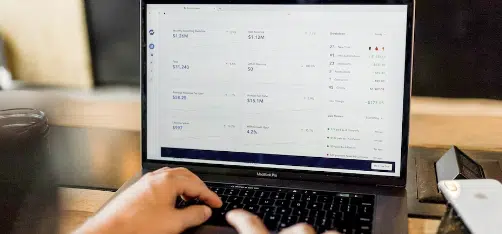
How do VPNs for crypto trading work?
VPNs enhance the security of your cryptocurrency transactions, primarily from a privacy standpoint. It’s essential to note that Bitcoin and other digital assets, except privacy coins, are not genuinely anonymous but pseudonymous.
Consequently, once you undergo KYC/AML verification, it becomes relatively easy to trace your financial activities. As every transaction is recorded on a distributed public ledger, and cryptocurrency exchanges and internet service providers keep a record of your actual IP address, too, your privacy becomes vulnerable.
A trustworthy VPN service focused on privacy can shield your identity from various entities, such as hackers, government agencies, or malicious third parties. Privacy is widely acknowledged as a fundamental human right among individuals.
By ensuring that your ownership of funds remains unknown, no one can steal your hard-earned money, making privacy the ultimate security measure.
There’s no need for concern regarding the security of popular tokens like BTC. The protocols underlying these digital assets are designed with top-notch security measures, including robust end-to-end encryption.
Most exchange websites also utilize HTTPS end-to-end encryption, safeguarding the data you transmit to them. Yet, opting for a VPN provider offers an additional security layer, improving the overall security of your crypto interactions.

Some important reasons to start using a VPN:
- Encryption: A VPN encrypts the data you send over the network, making it much more challenging for unauthorized actors to intercept and understand.
- Additional Security: A VPN provides an additional layer of security against malware, viruses, and phishing attacks, fortifying your defenses while working with cryptocurrencies.
- IP Address Concealment: By hiding your IP address, a VPN thwarts attempts by hackers, government officials, and forensic analysis firms to track your online activities. This allows for anonymous buying and selling of cryptocurrencies, provided you avoid KYC/AML exchanges.
- Privacy-Focused Features: A privacy-oriented VPN doesn’t retain logs of your online activities and includes a kill switch feature that helps maintain your anonymity even if the VPN connection drops.
Finally, we recommend our readers avoid using free VPNs for their crypto-related online activities, as these providers often sustain themselves by selling your private data. If your privacy is paramount, opt for a paid VPN service that is generally more trusted and secure.
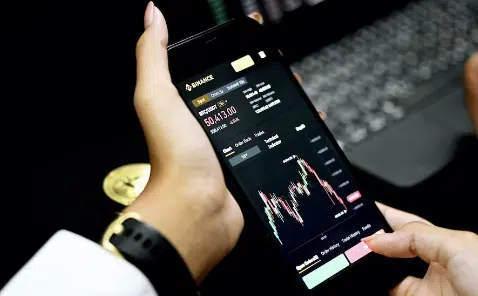
Types of VPNs for crypto trading
Here are the most common categories of VPNs for crypto trading.
Remote Access VPN
A Remote Access VPN allows one to create a secure connection to a private network and access its resources anywhere without hassle. These innovative and practical options make it perfect for crypto traders who need to access their trading platforms, wallets, and other resources on the go.
Compared to other types of VPNs, remote access VPNs outrank at safeguarding data exchanged between external users and an organization’s internal network. On top of that, they help create private tunnels between the company’s network and remote users, regardless of where they are based.
With robust encryption measures, remote access VPNs have become the go-to solution for ensuring remote security. Besides that, this technology enables users to confidently utilize company applications and resources, replicating the seamless experience of being physically present in the office.
Whether you’re an employee or a private user wanting to bypass regional restrictions, a Remote Access VPN ensures the confidentiality of your data, enhances online security and strengthens privacy.
Pros
- Encrypted remote access for companies and private users.
- Access to network resources from anywhere.
Cons
- Dependence on a stable Internet connection.
- Potential latency and performance impact.
- There is no visibility into what is happening within a VPN connection.
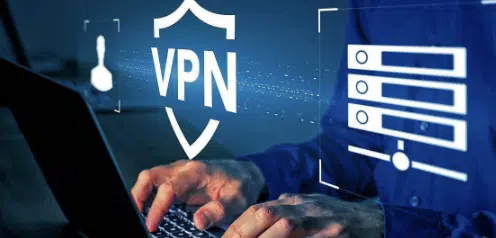
SSL VPN
SSL VPNs (Secure Sockets Layer Virtual Private Networks) are ideal for crypto traders seeking secure remote access to private networks. Using the SSL protocol, these VPNs establish encrypted tunnels between the user’s device and the crypto trader’ server, ensuring data confidentiality.
Unlike traditional IPsec VPNs, SSL VPNs are accessed through web browsers, eliminating the need for additional software installation. They provide seamless access to internal resources like e-mail, file servers, and databases.
SSL VPNs are highly secure, employing the same encryption protocols as HTTPS, the secure version of HTTP. This enhances the protection of sensitive crypto trading activities, making SSL VPNs a reliable choice.

Pros
- Provides encrypted tunnels for secure access to private networks.
- Accessible through web browsers – convenient for users.
Cons
- Potential performance impact due to encryption.
Site-to-site VPN
For crypto traders needing a VPN, a Site-to-Site VPN is worth considering. Big companies with multiple branch offices typically use it as it allows different office locations within the same company to connect their networks securely.
When the Site-to-Site VPN is used to connect offices within the same company, it is called an Intranet-based VPN. Contrariwise, when companies use Site-to-Site VPN to connect with another company’s office, it is called an Extranet-based VPN. These options provide crypto traders with secure and reliable network connectivity for their trading activities.
Pros
- Secure and private communication between multiple office locations.
- Simplifies network management across different sites.
Cons
- Requires technical setup and configuration.
- Additional costs for hardware and maintenance.

Cloud VPN
Cloud VPNs are an excellent tool for crypto traders as they ensure a safe way to connect to cloud-based resources. They use the internet as a transport medium, allowing traders to establish a protected connection to cloud infrastructures and services.
Major cloud providers like AWS and Azure offer Cloud VPN services. These VPNs prioritize data security using encryption protocols such as IPsec or SSL.
Organizations use them to securely link on-premises resources with cloud-based systems, including storage and SaaS applications. With Cloud VPNs, crypto traders can confidently access and interact with their cloud-hosted trading platforms and resources.
Pros
- Securely connect to cloud-based resources.
- Offered as a service by major cloud providers.
Cons
- Initial setup may require technical expertise.
- Performance can be affected due to encryption.

Mobile VPN
For crypto traders, mobile VPNs are essential tools that enable secure connections to private networks via cellular networks.
These VPNs establish encrypted and protected connections between mobile devices and VPN servers, safeguarding sensitive trading data.
Traders can securely access corporate resources like e-mail and internal websites while away from the office and protect their personal information using public Wi-Fi networks.
Mobile VPNs can be standalone apps or integrated into mobile device management (MDM) solutions, making them vital for securing crypto trading activities on the go.
Mobile VPNs may result in higher data usage and slower speeds and may have compatibility issues with specific devices and operating systems.
Pros
- Securely access private networks while on the go.
- Protect sensitive trading data when using public Wi-Fi networks.
Cons
- Potential for slower connection speeds and increased data usage.
- Compatibility issues with certain devices and operating systems.
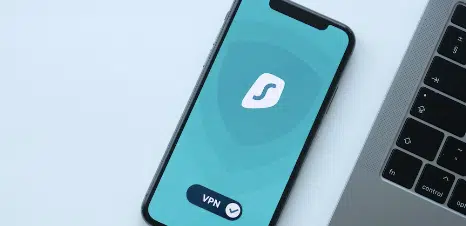
Open VPN
OpenVPN is a versatile and secure open-source VPN solution widely utilized by crypto traders. It leverages SSL encryption to ensure a safe and encrypted connection between two computers, ensuring the confidentiality of transmitted data.
With its extensive configurability, OpenVPN allows traders to securely access internal resources such as e-mail, file servers, and databases.
OpenVPN is highly flexible, adapting to diverse network configurations and security settings for crypto traders. Its emphasis on security is notable, with industry-standard encryption, two-factor authentication, and a kill switch. Secure your crypto trades reliably with OpenVPN.
Pros
- Flexible and compatible with diverse networks.
- Strong security with encryption and advanced security features.
Cons
- Requires technical setup.
- Potential performance impact.

Essential Features of a Cryptocurrency VPN
If you want to ensure the security of your data, you need a VPN that offers specific features. Here are a few things to look for when choosing a VPN.
Obfuscation
This feature conceals VPN traffic, making it appear as regular HTTPS traffic in most cases. It proves helpful when VPNs are banned or blocked in your country, as such restrictions would hinder your ability to use a VPN for crypto trading.
Obfuscation helps you maintain a low profile and bypass VPN blocks. For more information, you can refer to our comprehensive guide.

Kill Switch
A Kill Switch is a feature that automatically disables internet access when your VPN connection drops.
Even if you use a highly reliable VPN, connection disruptions can occur for various reasons. If this happens, even for a few seconds, your crypto trading traffic becomes vulnerable. A Kill Switch ensures that your cryptocurrency trading activities always remain private.
Kill Switches can also operate at the application level, allowing you to configure the VPN only to shut down your desktop trading platform or crypto wallet when the connection is lost.

No Logs
If a VPN keeps logs, especially usage logs, it compromises privacy. While your internet service provider (ISP) or the government may not be able to monitor your online activities, the VPN provider can.
Although they may claim they do nothing with your data, there is a possibility that they could share it with governments or sell it to advertisers without your knowledge.
Ideally, it would be best to choose a VPN that guarantees a no-log policy and can substantiate it with evidence. Examples of such VPNs include PIA (court documents prove their no-log claims) and NordVPN (they have conducted in-depth penetration-testing security audits).

Split Tunneling
Are you concerned about potential speed issues when using a VPN for cryptocurrency transactions? That’s understandable. A VPN can sometimes slow down your speeds, especially when syncing your wallet with the blockchain. The last thing you want is lag interfering with your day trading activities.
While there are measures you can take to improve VPN speed, the most effective solution in this scenario is split tunneling. This feature enables you to exclude specific traffic from the VPN tunnel.
For instance, you can configure the VPN to encrypt only the traffic originating from crypto wallets or desktop trading platforms or encrypt the browser used for crypto trading while excluding other applications like Skype or Steam.
By reducing the amount of data that needs encryption and decryption, you increase the likelihood of smoother and more stable VPN speeds.

Strong Encryption & Leak Protection
Robust encryption is crucial when using a VPN for crypto-related activities (or online endeavors). Military-grade encryption algorithms like AES-128 or AES-256 are typically reliable indicators. The VPN should also support robust protocols such as OpenVPN, IKEv2, SoftEther, or WireGuard.
If a VPN insists on using PPTP (which employs MPPE encryption), it is advisable to steer clear. PPTP is not secure and can be easily compromised. Likewise, it is essential to prevent data leakage from the VPN tunnel. For example, if your DNS queries leak, your ISP can determine which crypto websites you have been visiting. Therefore, the VPN should offer leak protection, often advertised as IPv6, DNS, and WebRTC leak protection.

Phishing & Malicious Site Protection
While a VPN cannot shield your device from direct malware infections, it can prevent you from unknowingly accessing hostile websites, such as fake crypto trading platforms designed to compromise your wallet keys.
In this context, a blocklist proves highly fruitful. Essentially, the VPN automatically blocks access to malicious domains. Depending on the sophistication of the feature, it may also block ads and provide DDoS protection.

Factors to consider when choosing VPN for crypto trading
Not all VPN providers are the same, so it’s vital to identify and prioritize your specific needs. Consider the following factors that make an excellent VPN for multiple tasks:
Speed
A slow internet connection can be incredibly frustrating, especially when trading cryptocurrencies or other online activities. While most VPNs generally impact speed, we recommend our readers look for providers that ensure minimal speed reduction, offering fast and reliable connectivity. Otherwise, it can effectively impact your trades and business.
Security
Ensuring a secure and reliable connection is one of the top applications of a Virtual Private Network (VPN). When picking a VPN for crypto trading or daily online surfing, it’s critical to prioritize features like AES-256 encryption and support for the protocol.
Furthermore, it would be best if you considered VPN providers that use open-source software. Such providers accept bitcoin numerous payment methods, such as decentralized tokens, enhancing the overall security of your connection.
Accessibility
VPN providers should comply with the laws, so it’s essential to understand the country where it is based and how its regulations might affect your privacy. This becomes particularly meaningful if you reside in or frequently travel. A reputable VPN will have a vast network of servers globally.
Ease of Use
Selecting a remote access VPN that prioritizes user-friendliness is essential. An interactive interface is crucial when it comes to a user-friendly VPN. It should be easy to navigate and operate.
Choosing a VPN with an intuitive interface can save time and optimize your remote access experience, boosting productivity and efficiency.
Compatibility
If you use multiple devices for your daily online activities, selecting a VPN that caters to all of them is what we recommend. You should opt for a provider with effortless connectivity across various platforms, including desktops, laptops, and smartphones.
Restricting yourself to a VPN limited to a specific device can hinder its usefulness in different scenarios. By picking a multipurpose VPN, you can appreciate secure connections and uninterrupted access across all your devices.
Customer Support
Without extensive VPN knowledge, reliable customer support is essential for new and old users. Some VPNs can be pretty complicated, while others can be user-friendly.
That’s why looking for VPN providers offering comprehensive resources, such as a robust FAQs section, live chat support, dedicated representatives, and educational resources, is essential.
Payment Options
Consider the payment options available when selecting a VPN. Most VPNs have monthly subscriptions ranging from $5 to $15. Paying upfront for a couple of years can be a better deal, typically around $30 to $45 per year. However, we recommend being cautious of lifetime deals that offer lifetime access for a small fee, as they may lack long-term incentives for quality service.

The risks of using a VPN with crypto trading
While using a VPN for crypto trading is generally legal, certain risks are involved when trading crypto. For instance, popular crypto exchanges, like Binance, explicitly prohibit the use of VPNs by U.S. residents, potentially leading to the suspension of your account if detected.
However, residents of the United States can opt for Binance US, albeit with limited cryptocurrency options. To gain further insights, you can refer to our comprehensive Binance review.
On the other hand, platforms that trade crypto, like Coinbase and Crypto.com do not explicitly forbid VPN usage in their user agreements. Nevertheless, providing accurate information while filling in their forms is crucial to avoid any potential suspension of your account.
Trading platforms have stringent regulations to comply with know-your-customer and anti-money laundering laws to prevent illicit activities. Similarly, decentralized exchanges may not outright ban VPNs, but utilizing a VPN that cannot be easily detected is vital to ensure seamless trading operations.

Conclusion
A trustworthy VPN serves as a valuable tool for safeguarding privacy and anonymity in the realm of cryptocurrency. While it is not a definitive solution that shields you from all potential risks, such as malware, hackers, and viruses. Since cryptocurrencies are inherently secure due to cryptographic encryption, they can undoubtedly strengthen your security and preserve your identity.
When selecting a VPN, prioritize those that adhere to a strict no-logs policy, and consider supporting service providers who also accept Bitcoin and cryptocurrency payments. When utilized appropriately, a privacy-focused VPN becomes an indispensable asset within your arsenal of security measures.
While not required, utilizing a VPN when engaging in cryptocurrency trading is highly recommended. Protect sensitive data and access cryptocurrency exchanges in permitted regions for secure transactions.
Selecting the best VPN for crypto trading depends on your needs and usage. A VPN worth its salt should possess critical features of the best crypto trading platforms, such as a vast array of servers, two-factor authentication, a kill switch, and an unwavering no-logs policy.
Yes, you can use multiple free VPN services. But we do not recommend using it for crypto trading as they often have data caps, reduced speed, and limited features compared to paid or premium versions. It's best to opt for a paid VPN for optimal performance and security.
A VPN can hide your identity and protect you from ISP tracking but cannot prevent tracking by sites you have been allowed access to. Outdated VPN protocols are vulnerable to known exploits and pose a security risk.


